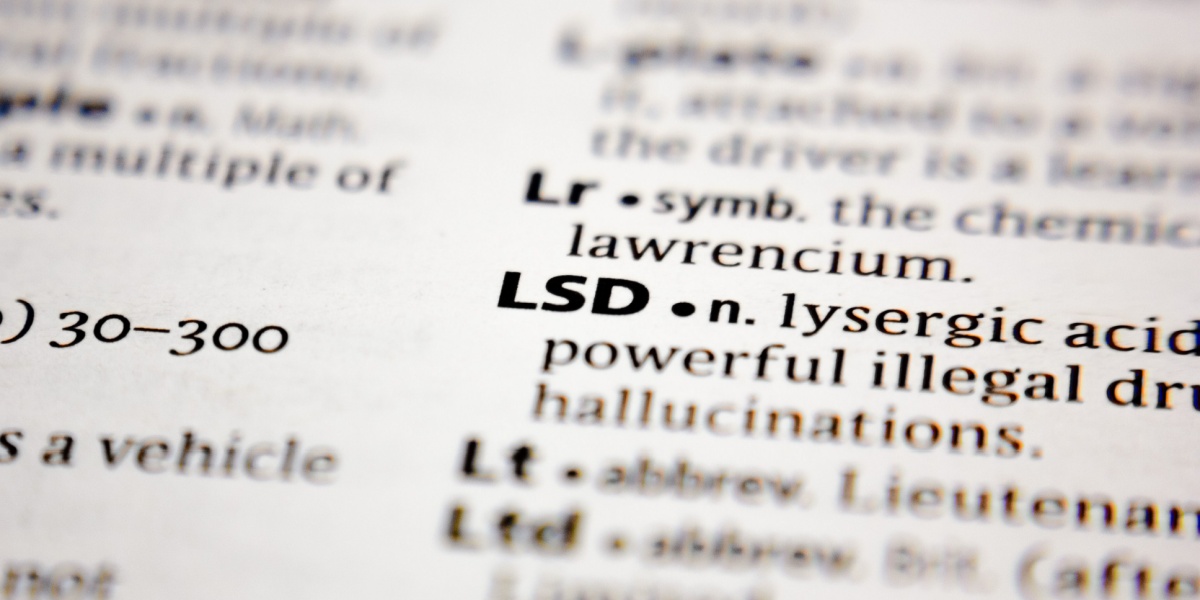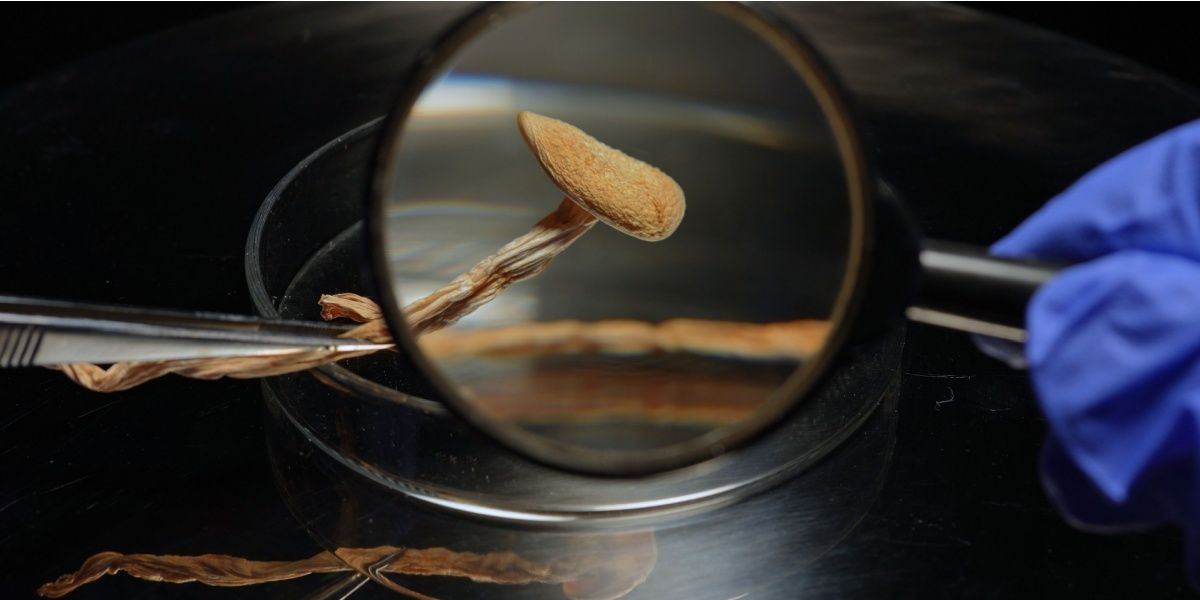Lysergic acid diethylamide (LSD) is a hallucinogenic drug categorized under US law as a Schedule I controlled substance. Penalties for possessing, manufacturing, or distributing LSD can include prison time and large fines. This article explains the laws regarding LSD and the differences between state laws.
- LSD is classified as a Schedule I substance, making its possession, manufacture, and distribution illegal under federal law.
- Penalties for LSD-related offenses vary by state but can include fines, prison sentences, and mandatory minimums.
- While some psychedelic substances are being reconsidered for medical use, LSD remains highly regulated.

LSD and the Controlled Substance Act (CSA)
Lysergic acid diethylamide (LSD) is a manmade, or synthetic, psychedelic drug. It is illegal and listed in the Controlled Substances Act (CSA) as a Schedule I controlled substance. This means that it has no accepted medical use and a high risk for abuse and addiction. [1]
As a Schedule I controlled substance, it is illegal to possess, manufacture, or distribute any amount of LSD in the United States.
LSD is usually in liquid form or available on tabs of paper or other small ingestible items on which the liquid is blotted and absorbed.
What other substances are Schedule I?
Other Schedule I substances include: [2]
- TCP (Tenocyclidine)
- 2C drugs
- MDMA (3,4-methylenedioxymethamphetamine)
- DMT (Dimethyltryptamine)
- 5-MeO-DMT
- Heroin
- Hydromorphinol
- Levomoramide
- Marijuana and THC (tetrahydrocannabinols)
- Peyote and mescaline
- Psilocybin
- Fentanyl analogs
Penalties for LSD offenses
Drug offenses include three categories: possession, distribution, and manufacturing. Possession refers to an individual having drugs on their person or easily accessible, such as within their home. Distribution refers to the sale or sharing of drugs. Manufacturing refers to the cultivation or making of drugs, which, in the case of LSD, would involve complex chemical processes usually in home-made laboratories.
On a federal level, each criminal offense may result in prison time and/or large fines. However, the laws vary by state. In some states, these crimes may not incur the same penalties, and there are differences in how the crime is classified as a felony or misdemeanor. [3]
Penalties for these crimes can vary and may be higher in certain circumstances, such as if additional crimes have been committed in the process, including violence, racketeering, or laundering. [4]
Possession
Penalties for possession can vary by state. However, as a Schedule I substance, federal law states that possession of LSD carries the following penalties: [4]
- First offense: A fine of at least $1000 and a prison sentence of up to one year.
- Second offense: A fine of at least $2,500 and 15 days to 2 years in prison.
- Third or subsequent offense: A fine of at least $5,000, 90 days to 3 years in prison.
Distribution
Distribution of LSD can be charged at a state or federal level, depending on the amount and whether the drug is being moved across state lines. Distribution of 1 gram or more of LSD is likely to be charged as a federal offense with a mandatory minimum sentence.
Fines for distributing LSD can range from $1 million to $50 million. Prison sentences can range from 5 years to life. Harsher penalties can be given in circumstances such as selling to minors, endangering the lives of others, or distributing LSD near a school. [4]
Manufacturing
The manufacturing of LSD is typically considered a felony and will likely result in mandatory minimum sentencing. Manufacturing can include intent to manufacture, which might involve obtaining precursor chemicals, specialized laboratory equipment, or other chemical substances. [5]
The penalty for manufacturing 1-10 grams of LSD can be five to 40 years imprisonment, and for bigger quantities, 10 years to life. Penalties can be higher, such as 15 years to life imprisonment for large-scale enterprises and additional crimes such as intent to supply, serious harm, or manufacturing LSD on federal property or near a school. [4][5]
Examples of state-specific LSD law
Classification of the offense can vary by state. For example, in some states, possession of LSD is a felony, while others may consider it a misdemeanor if it is a first offense or involves only a small amount of the drug. [6]
Many states base the severity of the penalty on the amount of LSD involved in the crime, with larger amounts considered higher class crimes. For example, in New York, possession of 25 mg of LSD can result in a maximum sentence of life imprisonment. [7]
Is LSD illegal in other countries?
LSD is listed in the United Nations’ Convention on Psychotropic Substances 1971 as a Schedule I substance. As such, LSD is illegal to possess or distribute in other countries, although it may be used for scientific purposes if approved by the country’s government and under a license. [8]
However, laws around psychedelic substances are changing in many places around the world. In most countries, substance laws relating to LSD detail drug classes (ie, Schedule I) or drug groups (ie, psychedelics) rather than specific drugs such as LSD. In some countries, psychedelics are decriminalized or legalized for scientific or medicinal uses, although this often does not apply to LSD. [9]
How does the law affect scientific studies of LSD?
Schedule I substances cannot be used unless within a government-approved research study. To gain approval for use within the study, researchers must go through a lengthy and complex process involving the DEA and FDA before commencing any research. [10][11]
Research proposals, including information about the researcher's qualifications and the research plan and protocols, are submitted for approval by the governing organizations. This can be costly, and it may take around a year to obtain the license required to begin using the substance in the study.
Because of this process, research of the potential therapeutic benefits of LSD and other Schedule I substances is limited. [11]
See also: DMT Therapy, Psilocybin Therapy, and Ibogaine Treatment
However, in 2017, the DEA updated the application process, intending to make it easier and quicker. Reportedly, over 590 researchers are now registered to use Schedule I substances in scientific studies, and all who submitted valid research proposals were approved. [12]
Is the law changing?
In recent years, increasing numbers of studies have demonstrated the therapeutic effects of psychedelic substances such as psilocybin and MDMA. Because of these developments, it is becoming more widely accepted that the laws around the scheduling of substances should be changed to allow more flexibility and access to psychedelic substances in scientific research. [10][11]
Many states have introduced or passed psychedelic reform bills to decriminalize their use, particularly in medical circumstances. The majority of these bills relate to psilocybin and MDMA, although other Schedule I psychedelics, such as LSD and peyote, are included in some. [10]
Laws around psychedelic legalization will likely continue to change over the next ten or so years. Based on the changes regarding the legalization of cannabis, it is predicted that psychedelics will be legalized by 2037. [10]
Conclusion
LSD is a highly potent psychedelic and hallucinogenic substance that currently has no accepted medical use. It can cause vivid visual and sensory perception changes and may cause harmful effects.
In the US, the possession, manufacture, and distribution of LSD are illegal on a federal level, although state laws and penalties can vary. As such, people should be aware of the current legal status of LSD in their state, as they may be subject to large fines or prison time if they use or possess the drug.
Additionally, state and federal laws are likely to change in the upcoming years if research into the therapeutic benefits of psychedelics continues.




